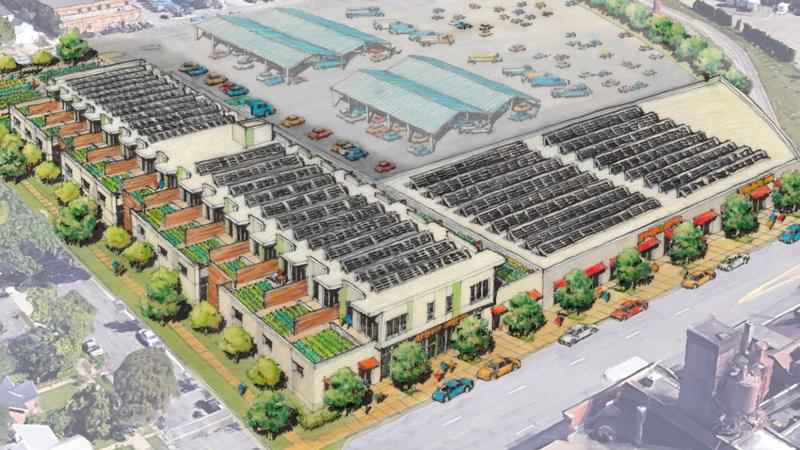Neighborhood group pledges $12.3M to build Urban Farm in south Minneapolis
[anvplayer video=”5053214″ station=”998122″]
A seven-year push to build an "Urban Farm" in the middle of a heavily industrial area of Minneapolis is one step closer to becoming a reality.
The East Phillips Neighborhood Institute, or EPNI, recently told a Minneapolis City Council committee that it could raise $12.3 million to secure a 7.6-acre site of the former Roof Depot at the corner of Longfellow Avenue and 28th Street East.
The City Council has agreed to give EPNI two years to raise the money but is split 6-6, with one council member abstaining from giving EPNI exclusive development rights over the site. The plot sits next to a foundry and an asphalt company in an area that is zoned industrial but also is part of the city’s Southside Green Zone plan.
EPNI President Dean Dovolis told 5 EYEWITNESS NEWS his group is confident they can raise the money but is concerned about the Urban Farm project becoming reality if his group is not given exclusive development rights at the old Roof Depot property.
“We are telling the City Council we don’t need any more pollution here,” Dovolis said. “Let’s really honor the Green Zone philosophy and make this a green industry with hydro and agricultural, which would be a big part of this project.”

This rendering shows the proposed Urban Farm Project at the former site of Roof Depot in the East Phillips neighborhood of Minneapolis.[East Phillips Neighborhood Institute]
The City Council is eyeing the site as an expansion of its Public Works Department by putting offices there for its water and sewer maintenance employees because there currently is not enough room at the city’s water and sewer maintenance facility.
“There are other places the city could consider for offices for those employees, but to add more cars and trucks coming in and out of this neighborhood is just more pollution,” Dovolis said. “We have our own fair share of pollution here and this would be an opportunity to provide good, fresh food and much-needed jobs to this diverse neighborhood.”
The site was once on the Environmental Protection Agency’s Superfund list but has since been cleaned up. Whatever chemicals remain beneath the old Roof Depot building and concrete parking lot do not pose a threat to the groundwater or residents.
At a recent Committee of the Whole meeting, City Council Member Alondra Cano voiced strong support for the Urban Farm plan and said there is a price to pay to fix years of pollution in a neighborhood that affects mostly people of color and working-class neighbors.
“It’s definitely something big and something huge, and it is a legacy project that is going to significantly improve the lives of hard-working people,” Cano said. “And so I just want to gently remind us that this is what institutional racism looks like and this is how much it costs to fix it.”
City Council President Lisa Bender reminded committee members that the city still has an obligation to find more space for its water and sewer maintenance employees because the city has a dire need to fix and repair its water and sewer lines sooner rather than later.
“I also don’t think we can take for granted the fact that our city provides clean water to people because not all cities do,” Bender said. “The tragedy of Flint is an extreme example, but the folks who fix our sewer and water systems do not have a functioning building today and they need to locate somewhere.”
A final vote from the City Council is expected Sept. 23.